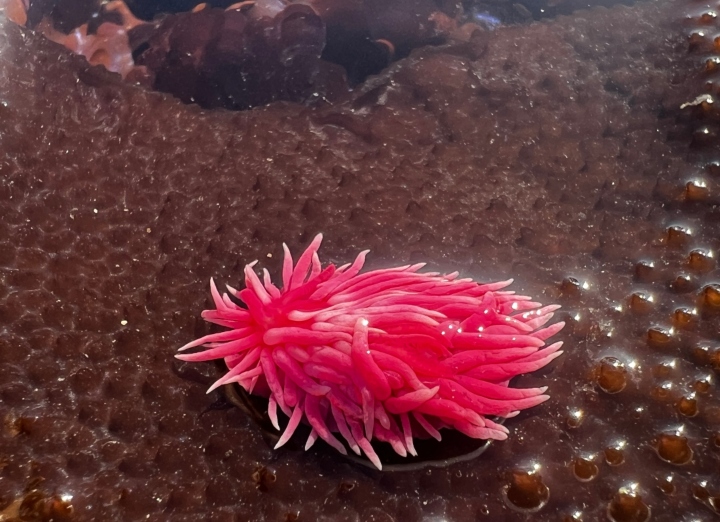TIDEPOOLING
Sometimes you need to take a break from herping to do a little tidepooling.
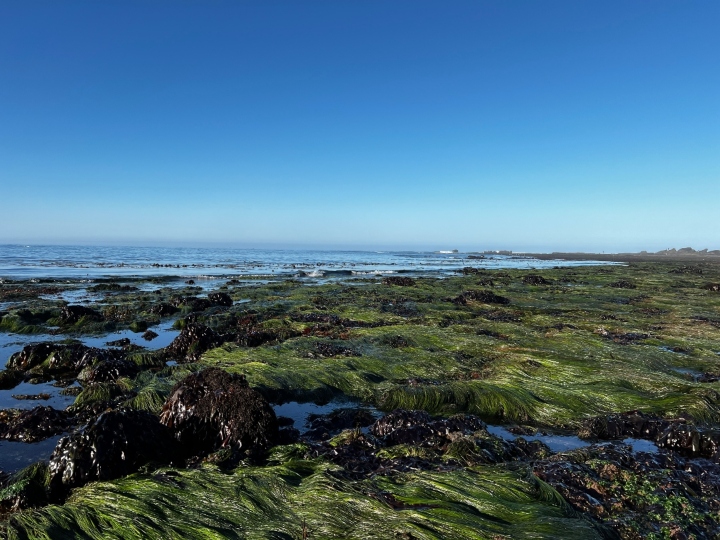
Red Rock Crab - As its name implies, this crustacean is often found in and around rocky places and features reddish-purple coloration.
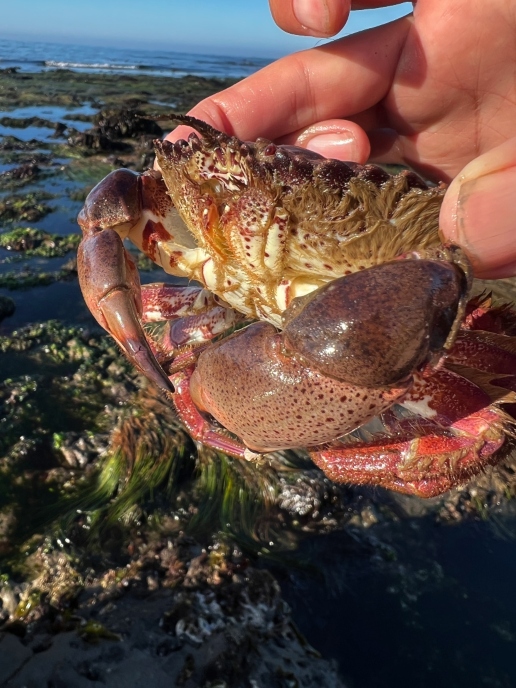
Smoothhead Sculpin - One thing that is noticeable about these particular sculpins is their massive heads, especially when compared to their tidepool peers.
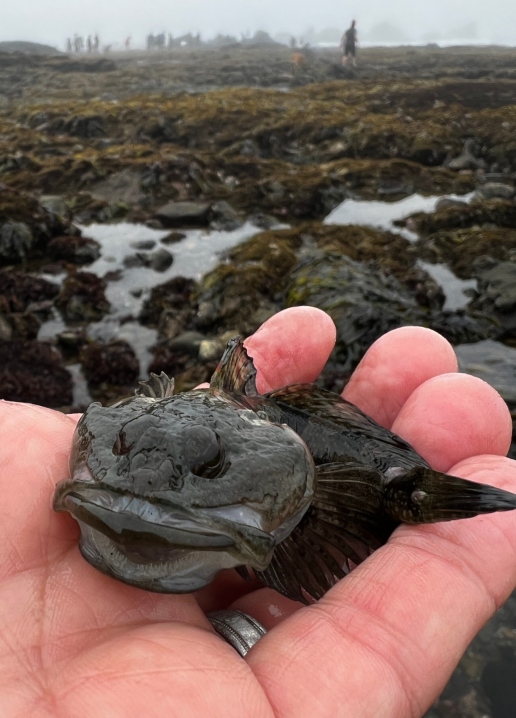
Julia with a couple of Ochre Sea Stars.
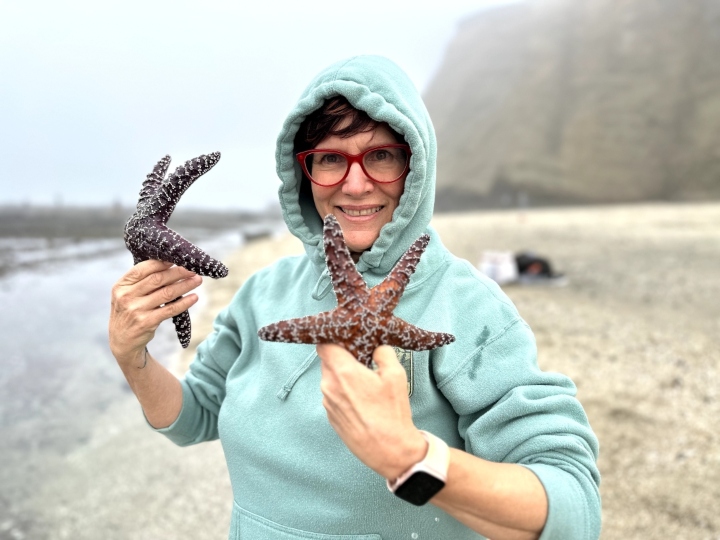
Tidepool Sculpins are salt water fish that live in tidepools and in sheltered intertidal areas. They are usually found near rocks in the low-level of the tidepool.
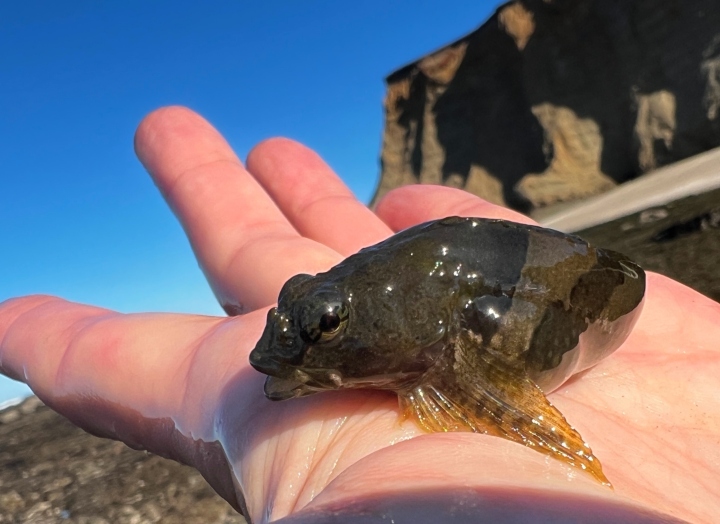
The Gumboot Chiton is the largest of the chitons, growing to 14 inches and capable of reaching a weight of more than 4 pounds.
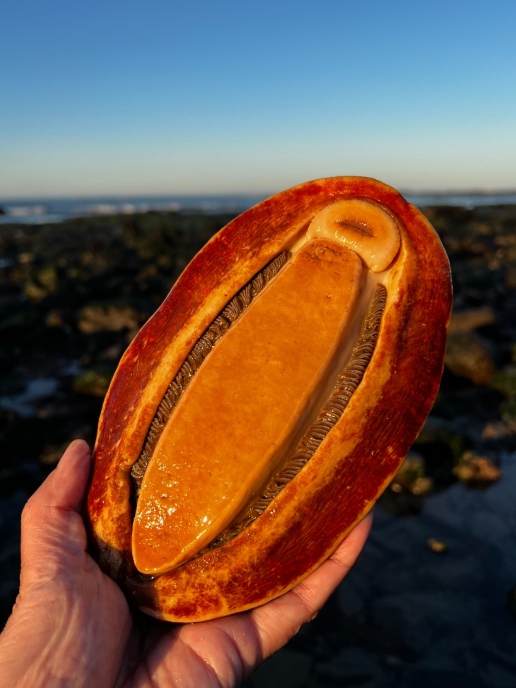
Most Clingfish species have tapering bodies and flattened heads, appearing somewhat tadpole-like in their overall shape.
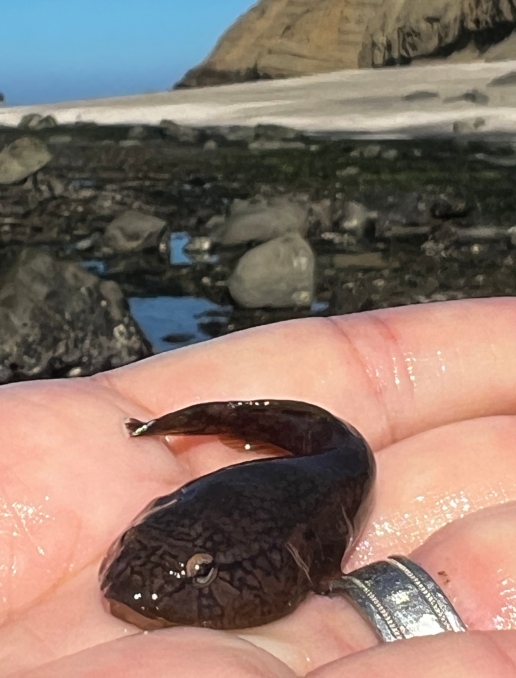
Monkeyface Prickleback - These long, slender fish, grow to about 18 inches in length and possess the unfishlike ability to breathe and survive out of water while hidden under seaweed or rocks.
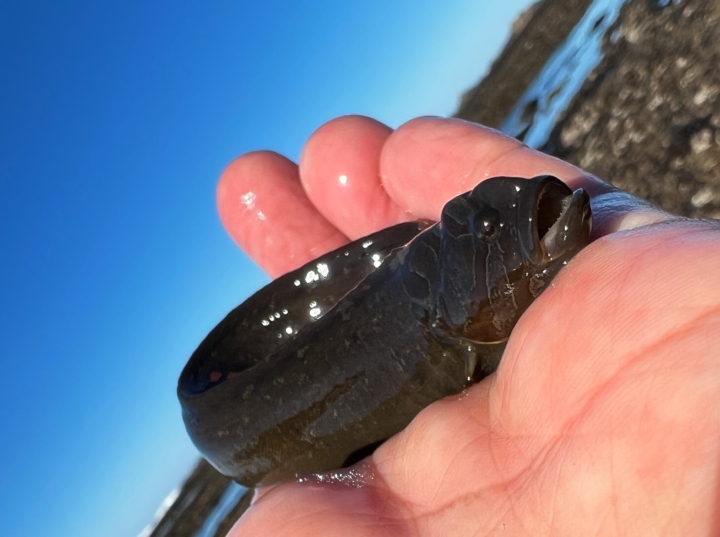
Harbor Seals have spotted coats in a variety of shades from white or silver-gray to black or dark brown. They reach five to six feet in length and weigh up to 300 pounds.
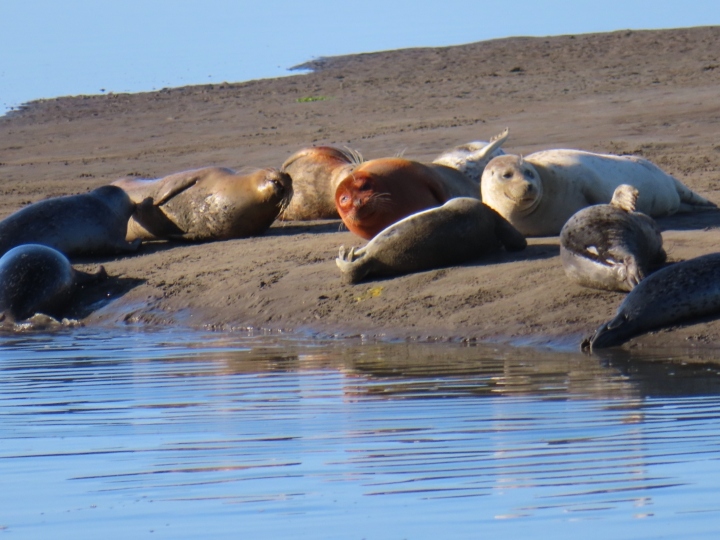
Cabezon - This is a scaleless fish with a broad bony support extending from the eye across the cheek just under the skin. It can grow up to 3 feet in length and weigh over 24 pounds, but on average they weigh 4 pounds and are less than two feet long.
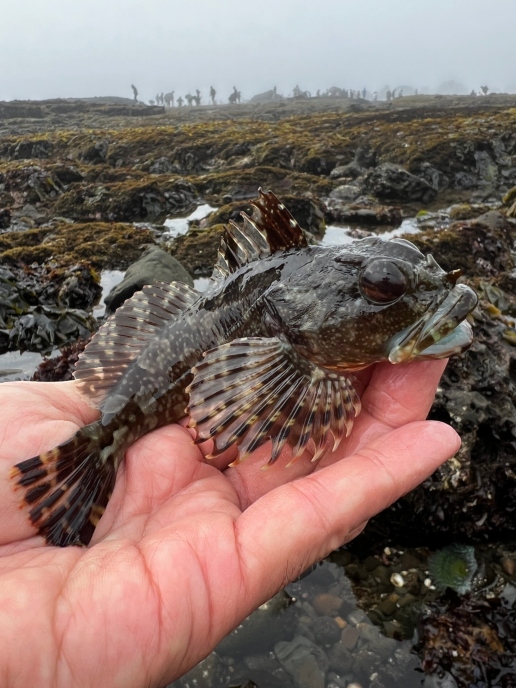
Connie taking notes on a Kelp Crab.
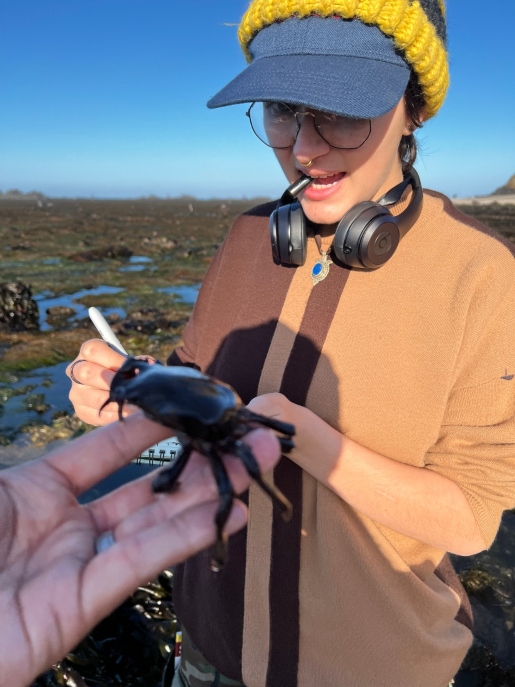
The Fluffy Sculpin (also known as the Lizard Fish) inhabits the coastal northwestern Pacific Ocean, ranging from Kodiak, Alaska to Baja California. Individuals reach up to 3-1/2 inches in length and are commonly found in tidepools; they are often associated with algae.
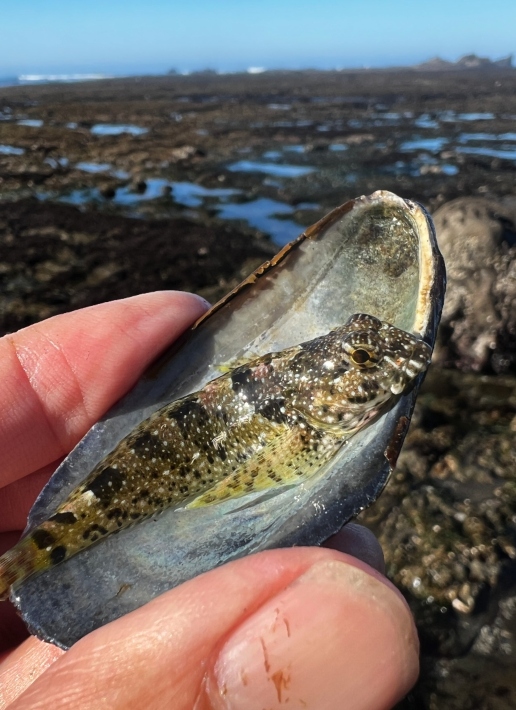
Black Prickleback - Pricklebacks belong a family of elongate fishes found in the cool northern oceans, with most species in the northern Pacific. In most species, all the dorsal rays are strong, sharp spines - which is the source of the common name "Prickleback."
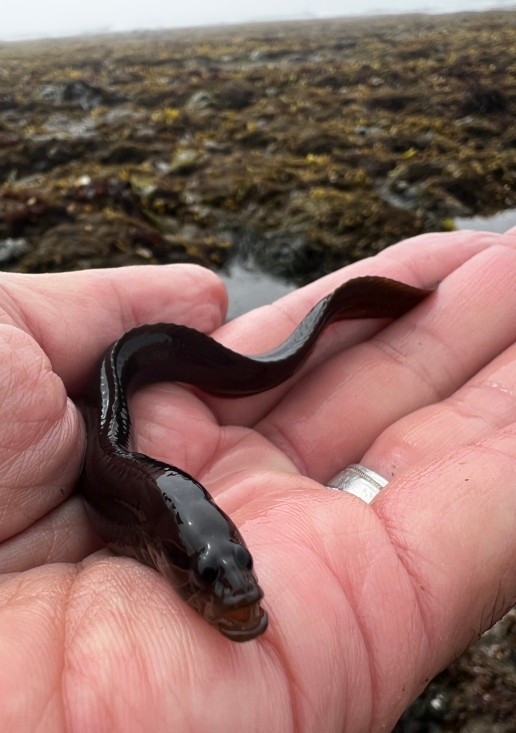
The Hopkin’s Rose Nudibranch is a small, colorful, shell-less sea slug that adds a pop of color to tidepools along North America’s West Coast.
